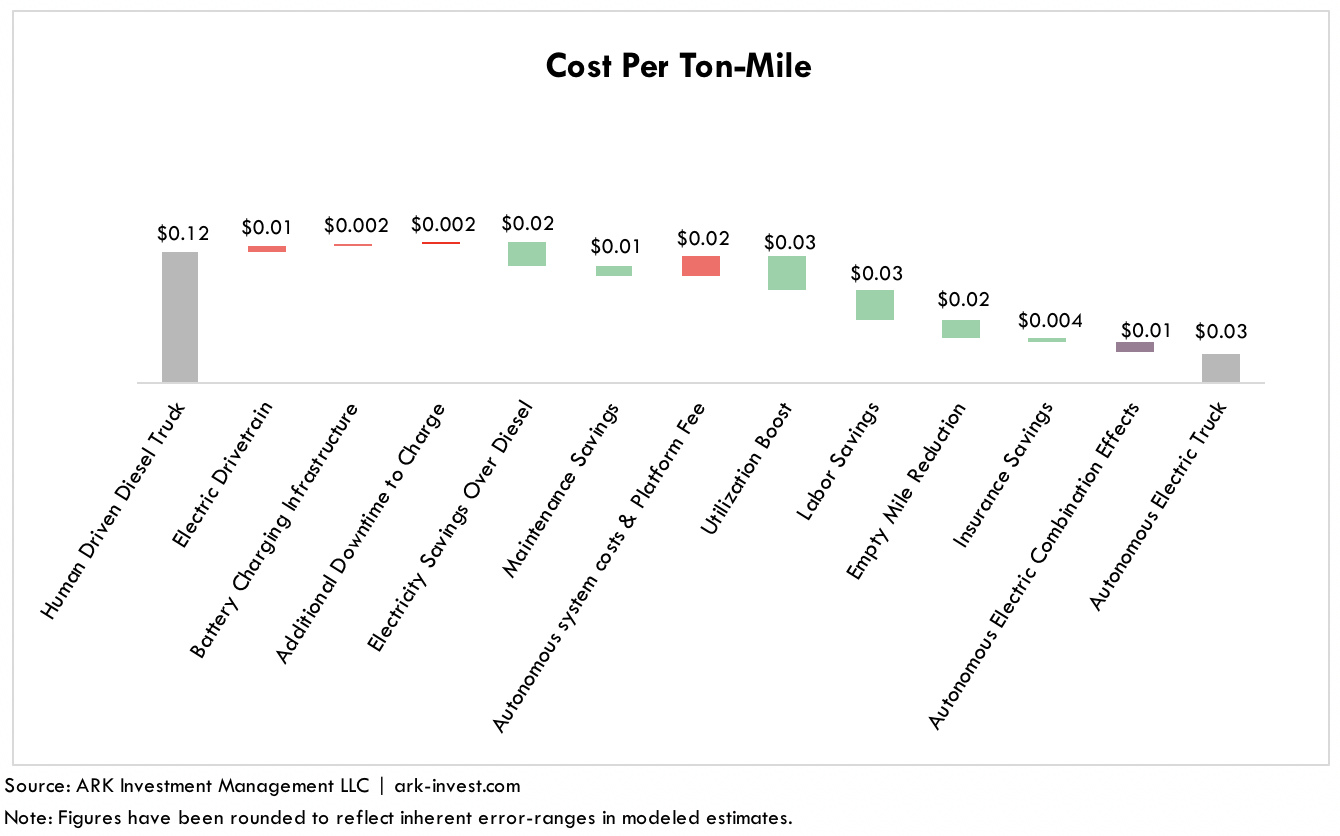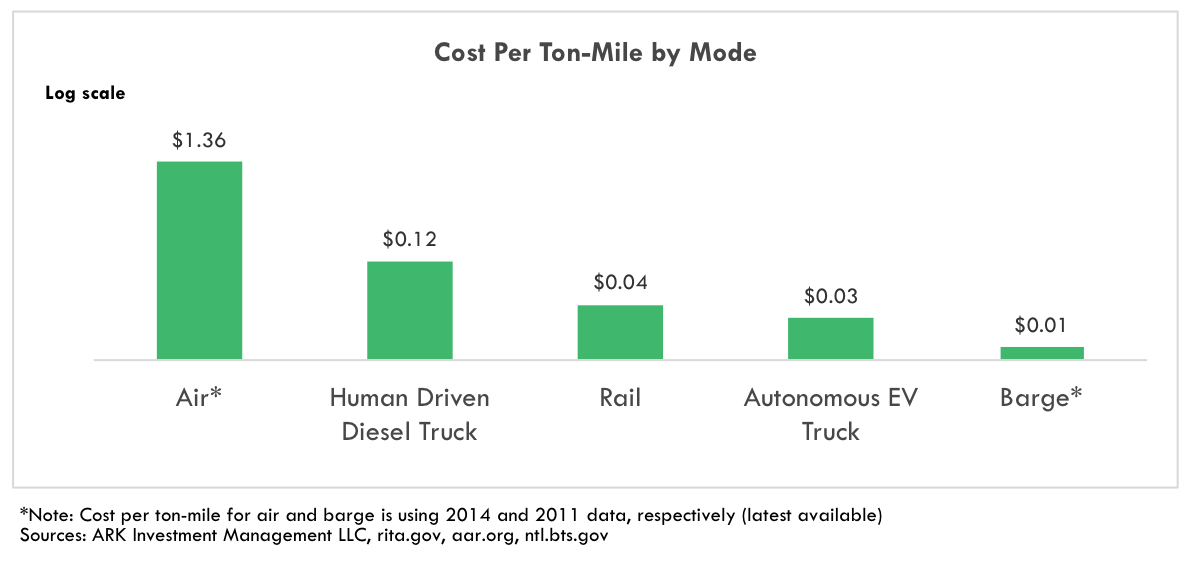
The auto industry is undergoing a dramatic transformation as a result of two technological innovations: the electric drivetrain and autonomous technology. Not only should these innovations supplant the internal combustion engine and relieve passengers of all front-seat driving responsibilities, but they also likely will transform the delivery of goods and services.
ARK expects autonomous electric trucks to reduce the cost of trucking from 12 cents per ton-mile to 3 cents during the next five to ten years. Initially, truck shipment revenues could contract from $180 billion as costs drop by roughly 75%. Longer term, however, the ton-miles shipped by truck could double as autonomous electric platforms undercut rail and add $100 billion to revenues.
The combination of electric and autonomous technology will increase the productivity and lower the costs of trucking enormously. According to ARK’s research, electric drivetrains will push shipping costs down from 12 cents to 10 cents per ton-mile. Autonomous technology should cut costs by another 7 cents to 3 cents, as shown below.

Higher utilization rates and reduced labor are the two most important variables in lowering autonomous trucking costs. Astonishingly, in the US today the capacity utilization of trucks is below 20%. ARK estimates that the utilization of autonomous trucks will be four times higher, not only relieving drivers of grueling duties behind the wheel but also reducing labor costs significantly.[1]
The shift toward autonomous trucks should spur consolidation in the trucking industry. Among the 500,000 trucking companies in the US, most are owner-operated with fewer than 6 trucks. Autonomous fleets should create more efficiency in routing and fewer “deadhead miles” – miles driven with an empty trailer. Fewer accidents also should lower insurance costs over time.
The transition from gas-powered to electric trucking should drive the cost per ton-mile down to levels lower than in the rail industry, as shown below. Lower electricity and maintenance costs will magnify the impact of autonomous-related cost reductions.

If autonomous electric trucks were to absorb the ton-miles shipped over rail in the US, the truck logistics market could double to roughly 3.4 trillion ton-miles, a $100 billion market-opportunity.[2] Door-to-door, trucks also will offer a speed advantage over rail.
Although trucks cause more infrastructure wear-and-tear than rail, if we were to adjust costs by a hypothetical cent per-ton assessment for pavement damage,[3] autonomous trucks still would be at parity with rail. Consequently, miles traveled on U.S. roads could soar exacerbating the demands on infrastructure. Thus far, the U.S. government has taken an autonomous-friendly stance: US Secretary of Transportation, Elaine Chao, recently stated that the federal government will prioritize new infrastructure projects related to autonomous driving. If made legal for commercial purposes, drones also could take some of the load off of ground transportation for goods lighter than five pounds.
While highway driving will be easier to automate than suburban street driving, autonomous trucks probably will come to market after autonomous passenger cars, as heavy-duty trucks will have to navigate through and maneuver around suburban traffic in the last mile of each journey. Large trucking companies also have more powerful unions which already are lobbying against regulations supporting the move to autonomous.
That said, ARK expects autonomous trucks to be commercially available within the next five years. Among the companies currently developing autonomous truck platforms are Tesla [TSLA], Waymo [GOOG], Uber, Volkswagen [VLKAY], Volvo [VOLVY], PACCAR [PCAR], and Daimler [DDAIF]. Given Tesla’s aggressive investment in autonomous electric vehicles, it could infiltrate and take share in trucks much like it has in electric cars though, undoubtedly, the competition will be fierce.

 Actively Managed Equity
Actively Managed Equity Overview: All Strategies
Overview: All Strategies Investor Resources
Investor Resources Indexed Equity
Indexed Equity Private Equity
Private Equity Digital Assets
Digital Assets Invest In The Future Today
Invest In The Future Today
 Take Advantage Of Market Inefficiencies
Take Advantage Of Market Inefficiencies
 Make The World A Better Place
Make The World A Better Place
 Articles
Articles Podcasts
Podcasts White Papers
White Papers Newsletters
Newsletters Videos
Videos Big Ideas 2024
Big Ideas 2024



